November 6, 2023:
Artificial intelligence in school
"AI can be a very good tool for creative problem solving and can be your sparring partner, but to be able to use it safely, you need to have knowledge of both how AI works and of the subject.
An AI tool can give us more digital creative power, but it requires good digital judgement.
AI is everywhere and it is the school's responsibility to give students knowledge about it."
No Strümke
Artificial intelligence (AI) occupies our everyday life, and also the school. How can children and young people use technology creatively and sensibly, and understand what challenges technology creates? How can they develop their digital creativity and judgment using artificial intelligence? What pedagogical tools can you as a teacher use to introduce students to technology in a safe and practical way and at the same time make them understand the ethical dilemmas we face?
Educators at the knowledge centers in Norway are testing and developing new educational schemes to respond to these challenges. The target group for the programs is mainly secondary school and upper secondary school. At this conference, we share our experiences with various educational tools and resources and give recommendations on target group, duration and level.
The project " Digital creativity and judgment with AI " is financed by Sparebankstiftelsen DnB and will be implemented in 2023.
Welcome to an inspiring, educational and fun day!
Monday 6 November 2023
09:00-15:30
Oslo Science Centre
Place: The Norwegian Museum of Science and Technology , Kjelsåsveien 143, Oslo.
Find the way
Enrollment:
FULLY BOOKED!
We apologize, but the conference is fully booked.
For those who have signed up:
The conference is free, but in case of non-attendance, possibly if cancellation is not made 2 weeks before the event, the school will be invoiced NOK 500.
Program for the day
-
08.00 – 09.00 Registration and coffee
-
09.00 – 10.15 Plenary session in the auditorium
- Opening of the conference, by Safina deKlerk, head of Oslo Science Centre
- Introduction to the project "Digital creativity and judgment with AI", by Jon Haavie, Oslo Science Centre
- Competence package on artificial intelligence in schools at the Norwegian Directorate of Education, by Lars Nordmo and Lars Gimse
- Introduction to workshops
-
10.15 – 10.30 Break and room change
-
10.30 – 12.00 Parallel workshops
- AI Randaberg School at Odin Nøsen, Verdensrommet
- DIY sorting machine with micro:bit by Daniel Lacey-McDermott and and Kenneth Fossland, Teknolab
- Artificial intelligence in practice, Magne Hognestad and Jørn Hafver, Science Circus, Teknoteket
-
12.00 – 12.45 Lunch
-
12.45 – 1.30 Plenary session in the auditorium
- Artificial intelligence for teachers: a practical approach in and out of the classroom, Kenneth Bareksten
- How to use ChatGPT in school? by Odin Nøsen
- Introduction to workshops
-
13.30 – 13.45 Break and room change
-
13.45 – 15.15 Parallel workshops
- AI image generation, Hanne Madsen, Verdensrommet
- Programming with the help of ChatGPT, Jon Haavie, Oslo Science Centre , Teknoteket
- DIY AI robot with micro:bit by Kenneth Fossland and Jørn Hafver, Teknolab
-
15.15 – 15.30 Break and room change
-
15.30 – 16.30 Film screening
- Black Mirror episode about AI (for those who want)
Lectures and workshops
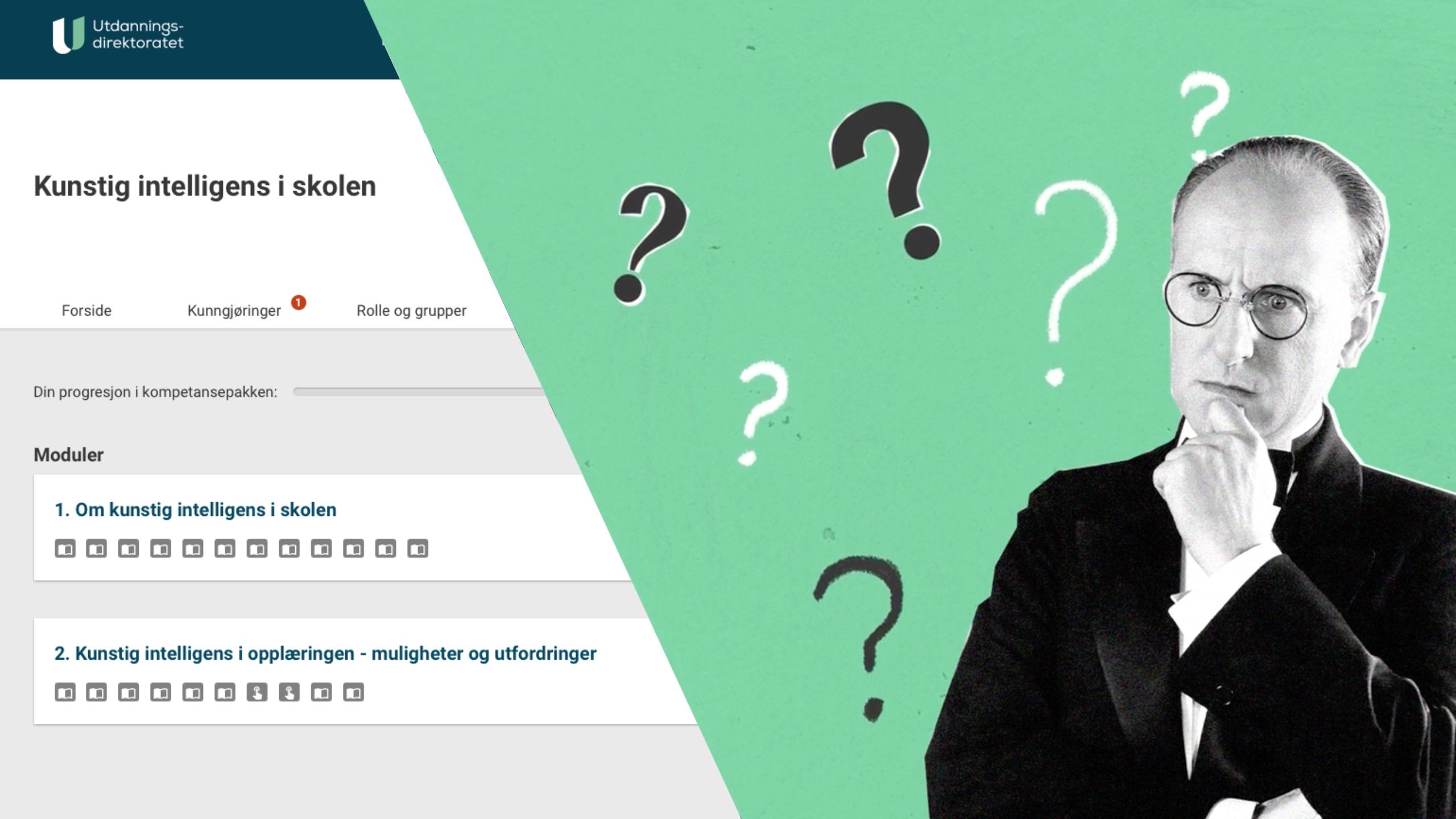
The competence package on artificial intelligence
Lars Nordmo and Lars Gimse, Norwegian Directorate of Education (UDIR)
UDIR has developed a competence package on artificial intelligence. This competence package will support teachers, school leaders and school owners in dealing with the rise of artificial intelligence.
The package deals with challenges and opportunities with this technology - especially in relation to teaching practice, assessment, source criticism, privacy and information security. You will also find discussion tasks and activities that will contribute to reflections in the professional communities.
The package has its own pages with management support for school managers and owners and will be updated continuously. You will receive an introduction to this competence package at the conference.
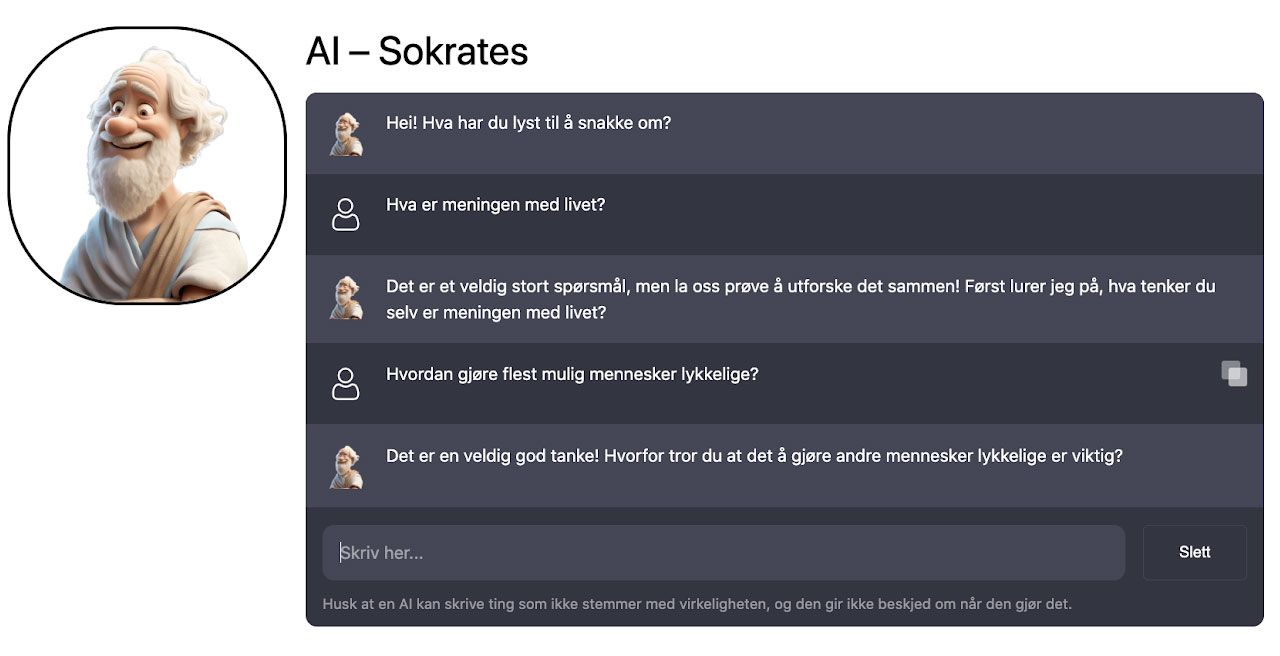
AI Randaberg School
Odin Nøsen, Game teachers/Randaber School
AI in Randabergskolen is a website where you can test different Chatbots adapted to teaching in schools that use ChatGPT.
The experiences with the Chatbots give students a good starting point to understand how the bots can be adapted to different needs, have different personalities and thus solve specific problems. The website also has many good examples for both teachers and students of how ChatGPT can be used in good ways.
The solution requires no login and thus solves problems related to ChatGPT/GDPR. The AI in Randaberskolen was created by Odin Nøsen (Spillpedagogene).
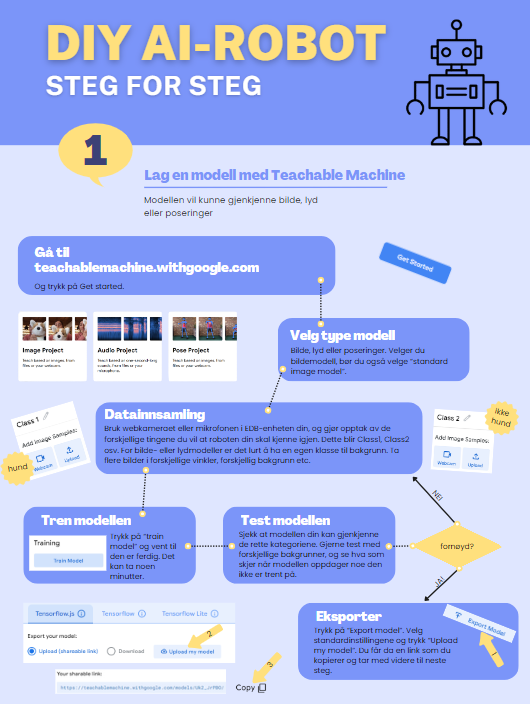
DIY AI robot with micro:bit
Kenneth Fossland, Science Center in Trondheim
Jørn Hafver, Science Circus
Kenneth and Jørn are daily science center pedagogues with a love of technology and the joy of creation. They think that everyone should learn how to make their own AI killer robot before their neighbor does. In this workshop, you create an AI robot that is programmed with micro:bit.

Artificial intelligence for teachers: a practical approach in and out of the classroom
Kenneth Bareksten, teacher at Engebråten school
Artificial intelligence for teachers is a practice-oriented book for use in an environment with a large documentation requirement. The school is such an environment, and teachers spend a lot of time ensuring that pupils receive the right and necessary training. However, artificial intelligence can do much of the administrative work, such as simplifying time-consuming tasks in brainstorming, overview, texts, audio and video, in addition to mathematics and coding. It will create space that teachers can use on students. With an understanding of the technology's principles and simple prompts, artificially intelligent software can create and facilitate good learning for students and time to do it for teachers.
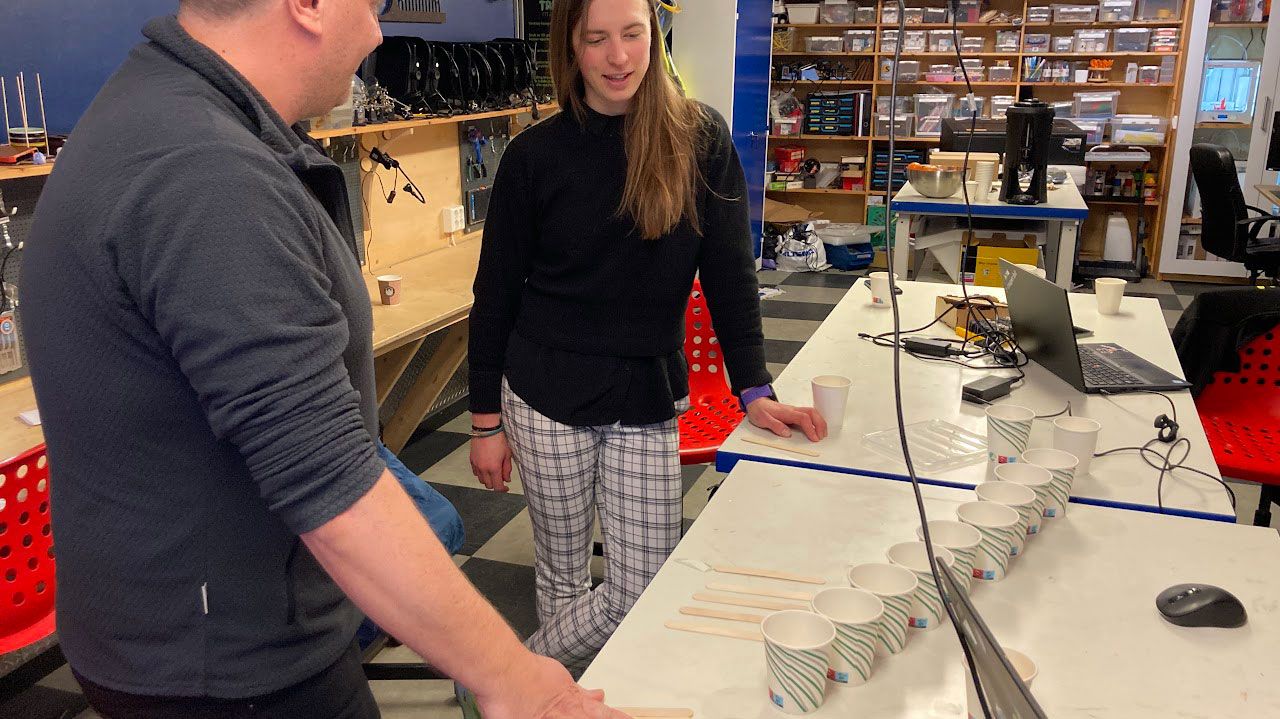
Artificial intelligence in practice
Magne Hognestad and Jørn Hafver, Science Circus
In this session we explore artificial intelligence through simple hands-on activities that illustrate some of the concepts behind the technology. Through the classic game "Nim", we create an AI without the use of a computer. We also need a neural network to distinguish between different flags.
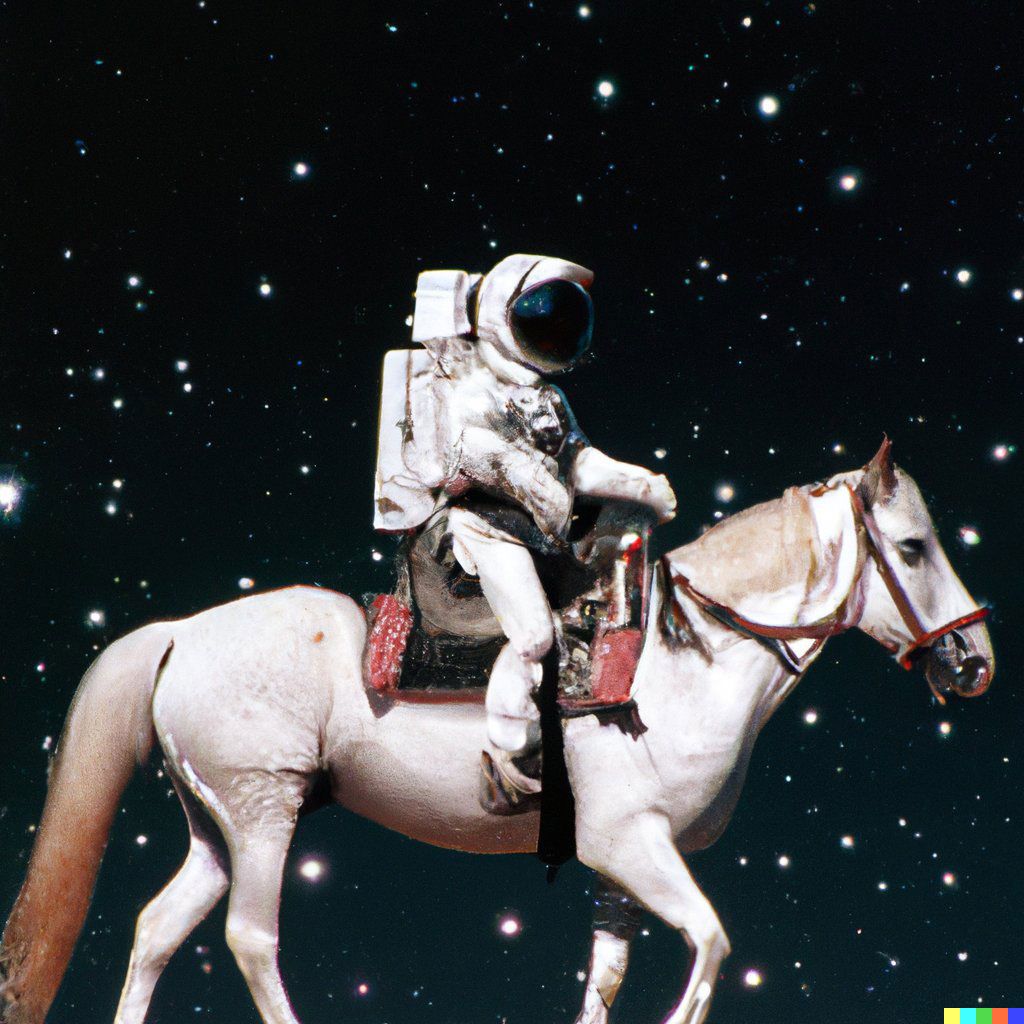
AI image generation
Hanne Madsen, Witenfabrikken
AI can generate images that appear to be real, like a photograph, or that imitate the expression of famous artists. All one needs to do is write a prompt in an AI image generator. The picture above was, for example, created with the prompt "“A photo of an astronaut riding a horse" using Dalle 2.
Hanne Madsen from the Vitenfabrikken goes through various tools to create "AI art" for use in teaching in schools where she also describes the advantages and disadvantages of the various tools as well as ethical dilemmas.
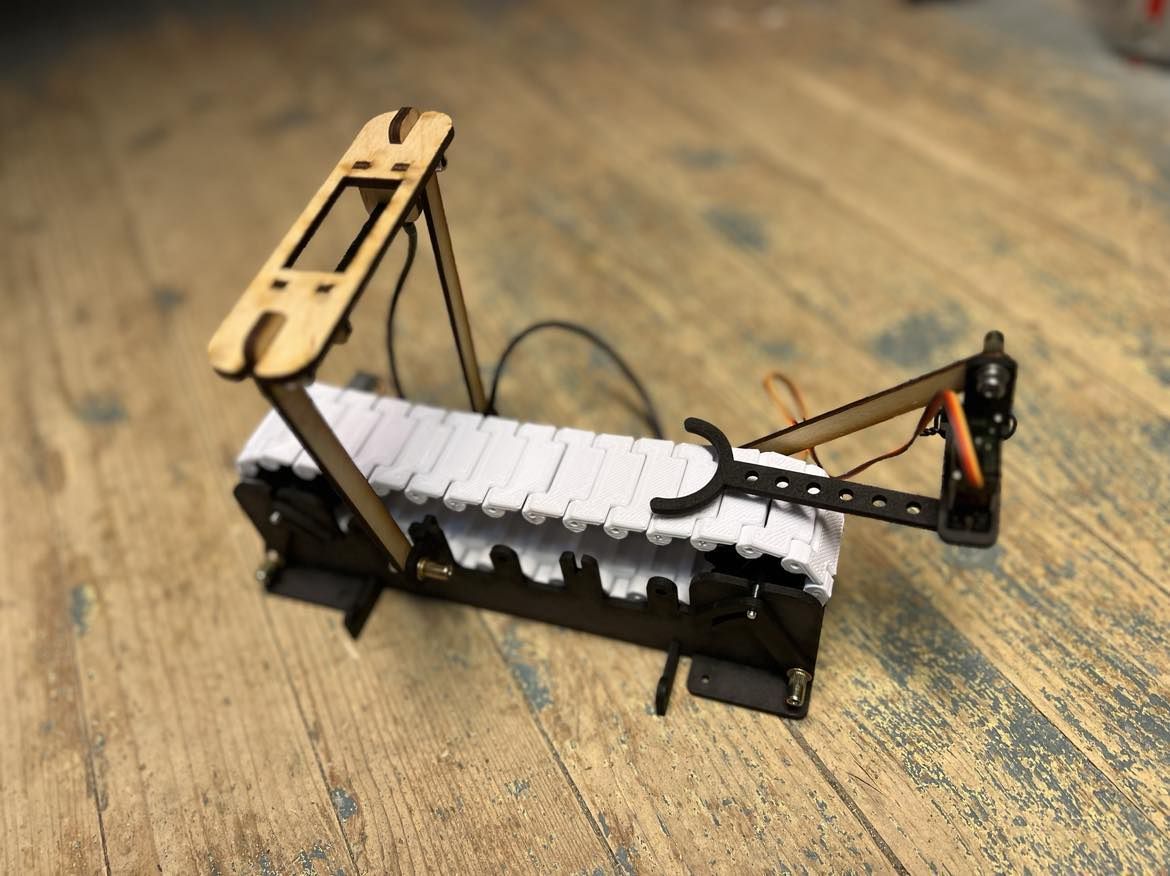
DIY sorting machine with micro:bit
Daniel Lacey-McDermott and Kenneth Fossland, Science Center in Trondheim
Artificial intelligence is used to recognize content, everything from cash machines to facial recognition on the mobile phone such as FaceID to monitor communities. In this workshop we create an artificial intelligence and use it to control a sorting machine. We use tools such as "Google Teachable Machine", the programming platform "MakeCode" and various equipment such as micro:bit and servos to create a sorting machine that can perhaps sort out the best twist (yes there is banana).
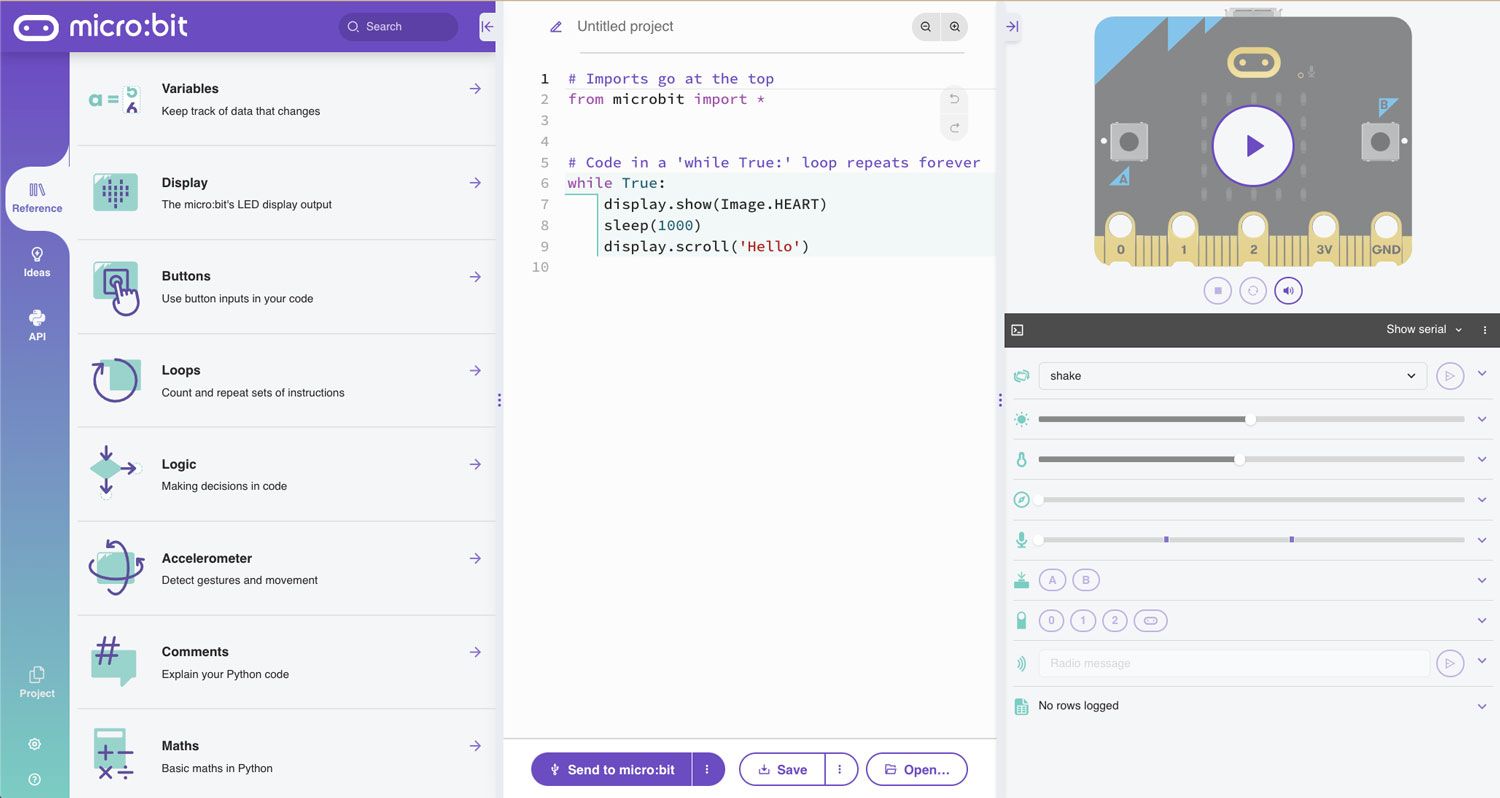
Programming using ChatGPT
Jon Haavie, Oslo Science Centre
Can artificial intelligence be an aid to learning text-based programming? In this session, we test using a code helper that uses ChatGPT to explore text-based programming in Python for micro:bit. We explore opportunities and discuss challenges with this solution. The code helper was created by Odin Nøsen.
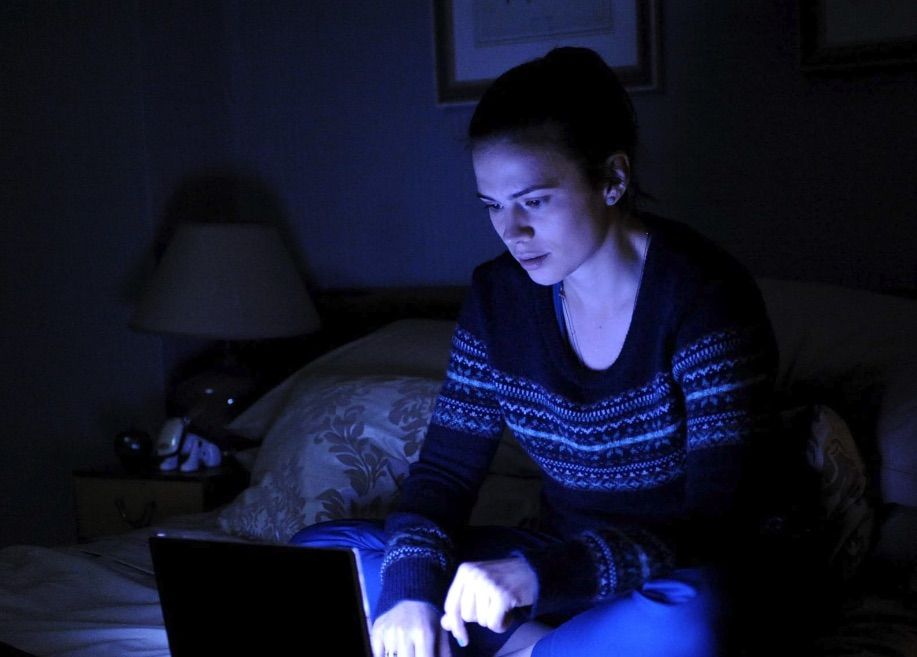
Film screening:
Be right back, Black Mirror
2013, IMDB score 8.0 , 50 min
A woman loses her partner in an accident. A friend tells her about a service that can create a virtual replica of her partner. An artificial intelligence is trained on the partner's communication and can then chat with the woman. The model is then trained on the man's voice so that a synthetic voice similar to the partner's can be created.
The episode is from 2013 and this is no longer Science Fiction, but actual services offered today. This raises a number of ethical dilemmas that can be interesting to debate/discuss with the students. The discussion can be linked to SnapChat's MyAI, which has already become many students' new AI friend.

